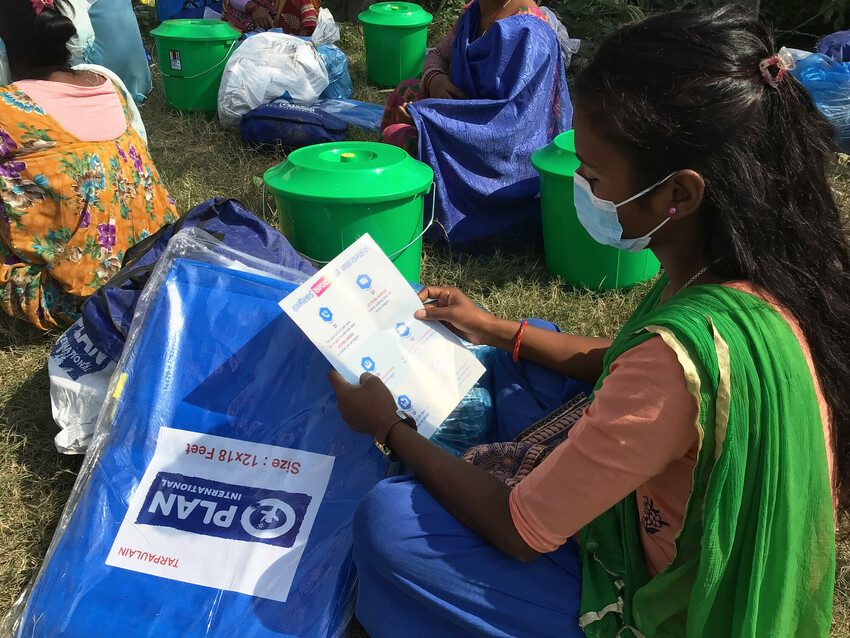Children return to learning in new classrooms
Children in Sindhuli, are learning in safe classrooms after landslides, with permanent buildings and facilities under construction.
Working with children and communities to reduce the risks caused by disasters.

As the earthquakes in 2015 emphasised only too clearly, Nepal is extremely vulnerable to natural disasters and their devastating consequences.
We support all children and their families and communities, especially the most vulnerable, to become more resilient to disasters, particularly floods and earthquakes, and to recover afterwards.
Our highly-skilled teams are committed to working with local government bodies to incorporate and implement activities in their local level development and planning processes that reduce the risks children face during and after disasters.
We achieve this through powerful partnerships with key influencers at different levels. As part of this, we are working with communities to establish village disaster committees, which are supplied with first-aid kits and light search-and-rescue equipment. We support the committees to implement small scale mitigation measures such as gabion walls, plantations and embankments in areas that are at risk.
The 2015 Nepal earthquakes impacted the lives of more than 8 million people, including 3.2 million children. With more than 600,000 houses damaged, millions of people were displaced in the aftermath of the earthquakes.
Since April 2015, Plan International has raised nearly €20 million to help 255,120 individuals, including 106,739 children impacted by the earthquakes in Nepal.
Plan International’s response in Nepal focused on 6 key areas:
We have placed particular focus on children, girls and women from marginalised communities who live in remote and hard-to-reach mountainous communities.
Meeting the physical and emotional needs of children is a priority. We strike a balance between meeting the urgent physical needs of children and communities – like food, water and shelter – and also the ‘invisible’ needs, such as emotional care, psychological first aid and the continuation of education.